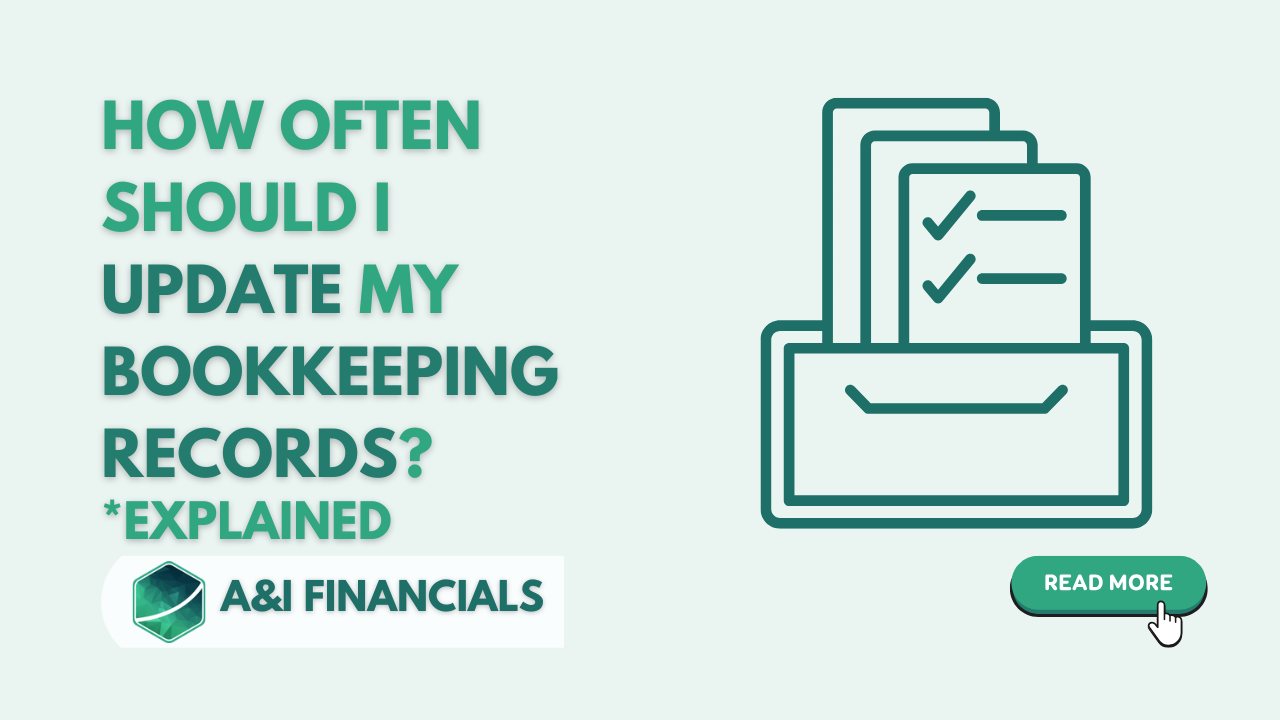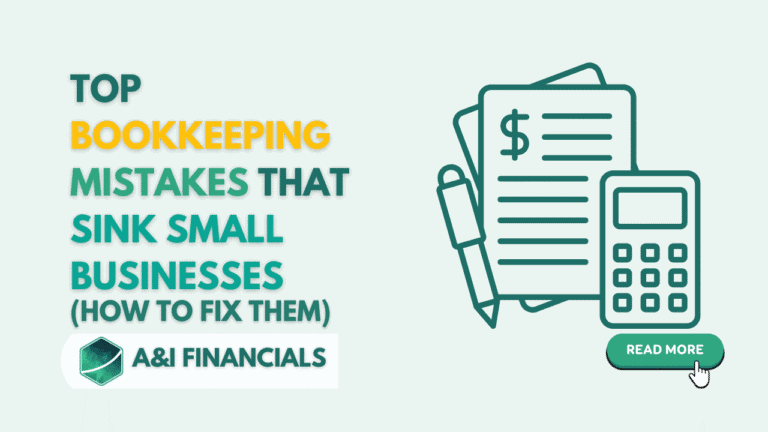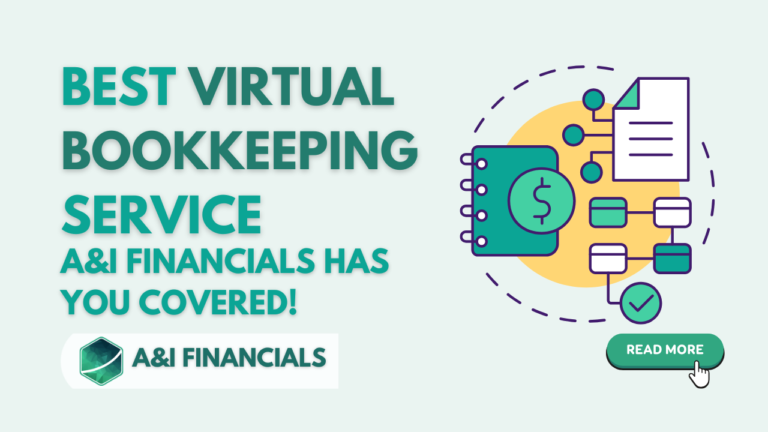How Often Should I Update My Bookkeeping Records?
Let’s be real for a second: managing your business’s bookkeeping can feel like one of those never-ending chores. But the big question on everyone’s mind is: How often should I update my bookkeeping records? Well, the short answer is: as often as you need to keep everything in check and running smoothly. For most people, that means staying on top of your financial updates on a daily or weekly basis. Let me tell you why this really matters and how it can make a huge difference for your business.
Why Regular Bookkeeping Updates Are Key
Think about your bookkeeping records like you would your car. You wouldn’t wait until the engine makes a funny noise to change the oil, right? In the same way, you don’t want to wait until tax season or a financial crisis to update your books. Maintaining accurate and up-to-date financial records is about ensuring your business runs smoothly every day.
You see, updating your bookkeeping isn’t just about keeping track of numbers—it’s about cash flow management, informed decisions, and reducing the risk of unwanted surprises. Trust me, you don’t want a surprise expense creeping up on you because you haven’t looked at your records in months. Keeping your books up-to-date helps you stay on top of your financial health, giving you a clearer picture of what’s happening inside your business.
Daily, Weekly, Monthly: What’s the Best Approach?
Daily Updates: Good for High Transaction Volumes
If you’re running a business that has a lot of daily transactions—think restaurants, retail stores, or e-commerce—updating your bookkeeping records daily is the best approach.
High transaction volumes mean there’s a lot going on that could easily fall through the cracks if not managed consistently. Daily updates make sure your records are accurate and up to date, allowing you to track every cent going in and out.
Weekly Updates: A Happy Medium for Most Businesses
For most small business owners, weekly updates work perfectly fine. Updating your bookkeeping on a weekly basis lets you keep things fresh, without feeling overwhelmed. It gives you a clear view of your financial data, allowing you to make informed decisions for the upcoming weeks. Plus, setting aside an hour or two each week to update your books isn’t nearly as overwhelming as waiting until the end of the month. Weekly updates are particularly good for keeping an eye on cash flow management.
Monthly Updates: Best for Simplicity, Not for Detail
If you prefer to look at your finances just once a month, it’s still better than doing nothing—but it’s not ideal. Monthly updates could mean you might miss some smaller errors or potential issues.
However, monthly bookkeeping works for those who run smaller operations with limited transactions. Just remember, the longer you wait between updates, the less accurate your information might become, which could impact your business decisions.
Why Waiting to Update Can Be Risky
Imagine trying to drive through a foggy night with no headlights—that’s what managing a business without updating your books feels like. When you don’t update your records often enough, you risk losing track of expenses, overestimating your cash flow, and even forgetting due dates for important payments. This not only affects your financial information but also impacts your business’s financial health.
When you update your books regularly, you get a real-time snapshot of your business’s financial position. This helps you make informed decisions about spending, investments, and other business choices. Waiting to update might not only reduce the accuracy of your financial information but also reduces the risk of unnecessary financial pitfalls.
Tools to Make Bookkeeping Easier
Now, let’s talk about how you can make this whole process simpler. If bookkeeping feels like a chore, there are so many accounting software solutions out there that can help. Tools like QuickBooks, Xero, and FreshBooks allow you to connect your bank accounts, automatically categorize expenses, and even help with financial statements. Using these tools will help you keep everything in one place, which is essential for maintaining accurate records.
For businesses with frequent transactions, having a system that provides real-time financial updates is crucial. This allows you to stay organized and avoid falling behind. Think of accounting software like a personal assistant—it does a lot of the work for you and makes your job easier.
Making a Habit of It
The secret to effective bookkeeping is consistency. Updating your bookkeeping records doesn’t have to be a dreadful event that you put off until the last minute. Instead, make it a habit. If you’re doing daily updates, set aside 15-20 minutes each day at a consistent time. If weekly works better for you, choose a day that’s typically quieter, and block off an hour.
Having these routines not only ensures you stay up-to-date, but it also makes it easier to spot any irregularities quickly. It’s like having a garden—you need to water it regularly if you want it to flourish. Similarly, a business’s financial health requires regular attention.
Involve a Professional If You’re Overwhelmed
Not everyone likes numbers, and that’s okay. If bookkeeping is stressing you out or taking up too much of your time, it might be a good idea to hire a professional bookkeeper. They can help you manage all your records, ensure everything’s accurate, and free you up to focus on what you do best—running your business.
Professional bookkeepers can also help generate financial statements and give insights that may not be immediately obvious to you. Think of a bookkeeper like a GPS—they guide you, make sure you’re on the right path, and help avoid obstacles.
Benefits of Regular Updates
- Better Business Decisions: When your books are up-to-date, you can make informed choices quickly. Whether it’s deciding on hiring, purchasing new equipment, or expanding your operations, having accurate financial data makes all the difference.
- Financial Health Snapshot: Regular updates give you a clear picture of your business’s financial health. You’ll always know where your money is, how much you owe, and how much you can spend.
- Reduces Errors: When you update regularly, errors are more likely to be caught early. This helps in reducing the risk of mistakes that could lead to financial losses.
- Saves Time in the Long Term: While it may seem like more work, staying on top of updates actually saves time. No more marathon bookkeeping sessions where you have to enter weeks’ worth of transactions.
The Impact on Cash Flow Management
Good cash flow management is like keeping a steady hand on the wheel while driving. When you’re updating your books regularly, you’re in full control. You know exactly when money’s coming in and when it’s going out, which helps you keep a stable cash flow. Businesses that don’t manage cash flow can end up in serious trouble—even profitable companies can find themselves without enough cash to operate if they aren’t paying attention.
Accurate and up-to-date bookkeeping records make cash flow predictions easier and more accurate. This way, you can avoid the surprise of suddenly realizing you don’t have enough to pay your bills this month.
Common Mistakes When Updating Bookkeeping Records
Not Doing It Often Enough
One of the biggest mistakes is simply not updating the books often enough. As mentioned earlier, waiting too long can lead to inaccuracies. Imagine forgetting about a few small expenses—over time, those can add up and impact your bottom line.
Mixing Personal and Business Finances
Another mistake is mixing personal finances with business expenses. This not only makes updating your records confusing, but it also leads to incorrect financial data. Always keep your personal and business transactions separate.
Ignoring Accounting Software
If you’re still using spreadsheets or paper, you’re making life harder for yourself. Modern accounting software can save you time, improve accuracy, and even help you automate much of your bookkeeping process. It’s like choosing to ride a bike up a hill when you have a car—why make it harder?
How to Get Started If You’re New to Bookkeeping
Starting bookkeeping can feel overwhelming, especially if you’ve never done it before. The best approach is to take it one step at a time. Begin by setting up a system—whether that’s a physical ledger, a spreadsheet, or, preferably, accounting software.
Categorize your income and expenses clearly. This makes it easier to see where money is coming in and where it’s going out. Make it a habit to enter your transactions on a set schedule—daily or weekly.
Bookkeeping and Business Growth
You might not think of bookkeeping as a driver of business growth, but let me tell you—it is. Financial information that’s clear and organized helps you make better decisions, anticipate growth opportunities, and avoid potential pitfalls. If you want to make informed decisions about your business, you need accurate bookkeeping.
Take, for example, deciding whether to hire a new employee. If your records show that cash flow is strong and stable, you’ll have the confidence to bring someone new on board. On the other hand, if your books are outdated and unreliable, you might make the wrong decision that ends up hurting your business.
Long-Term Benefits of Regular Updates
Keeping your books updated has tremendous long-term benefits. Imagine five years down the road—you want to expand your business, get a loan, or even attract investors. Accurate and detailed records will show lenders or investors that you’re running a financially healthy and responsible business. It’s like going to a bank dressed professionally and prepared with all your documents—you’re more likely to get a positive response.
Conclusion: Stay on Top of Your Books
So, how often should you update your bookkeeping records? Ideally, as often as your business needs to ensure accurate financial insights and stay on top of your financial health. For some, that’s daily, for others, weekly—but the key is consistency.
Updating your books is like nurturing a garden; it’s not something you can do once and forget about. Instead, it’s a habit you cultivate over time, and the rewards are huge. You’ll enjoy better cash flow, make smarter business decisions, and sleep a little easier knowing that your finances are in order.






